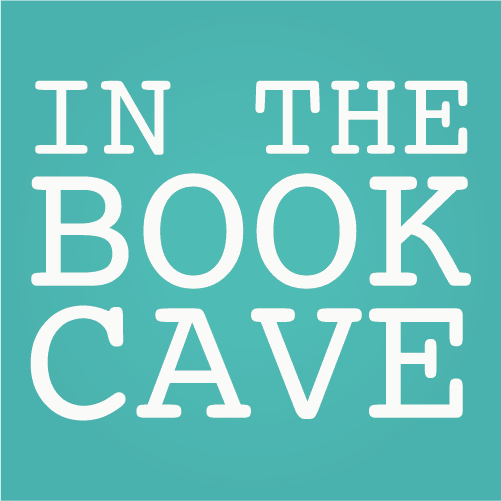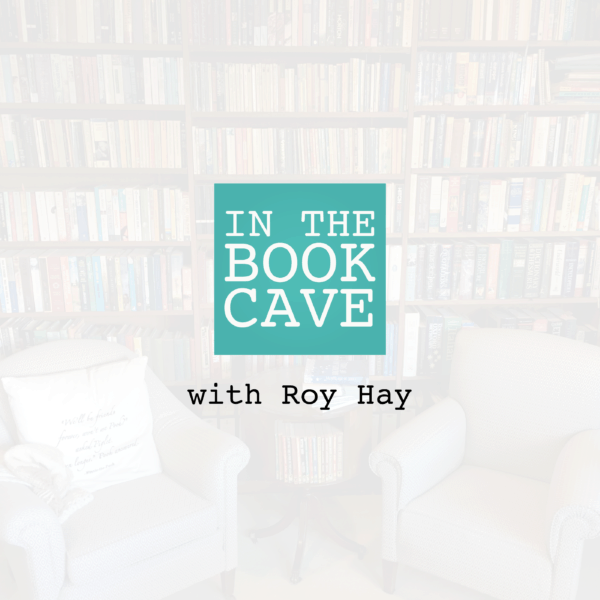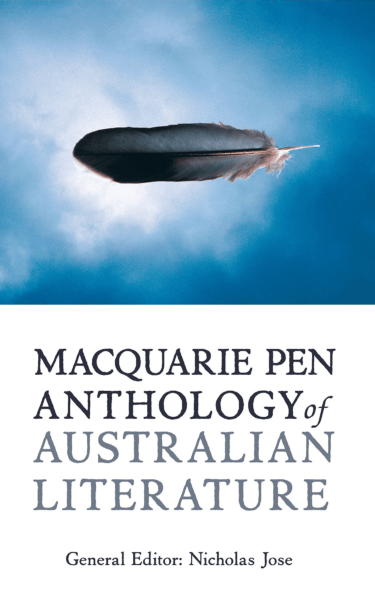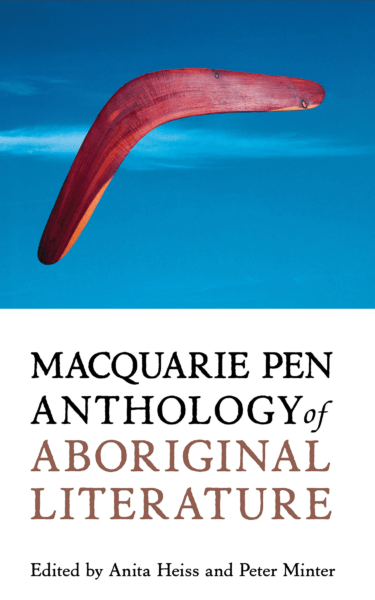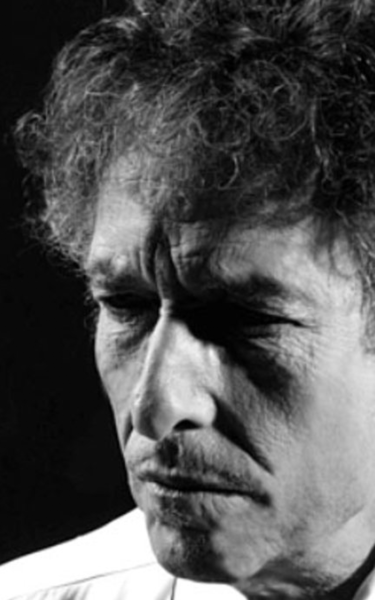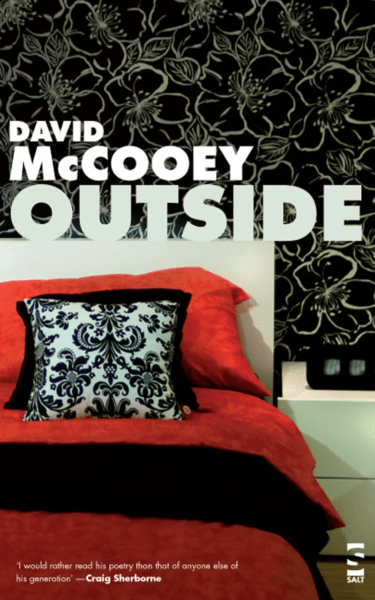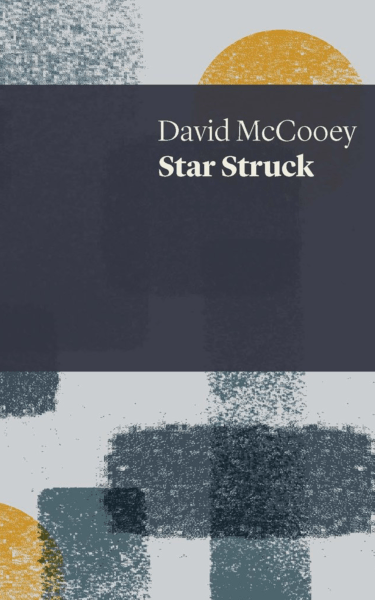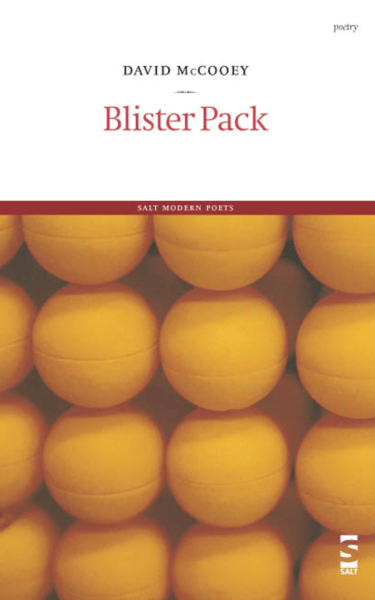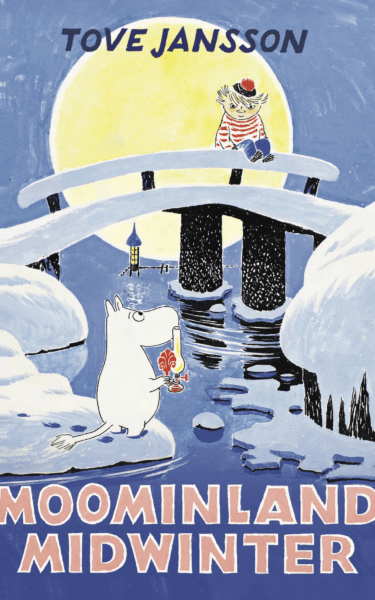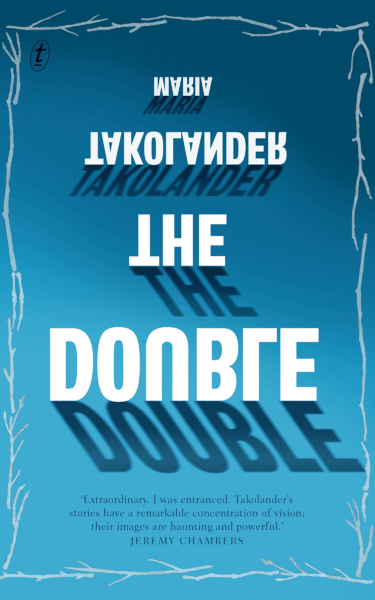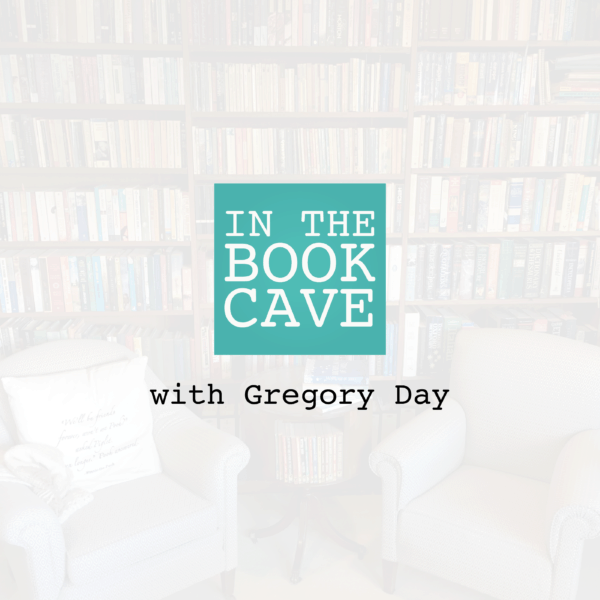
Audio Version
David McCooey
Author, Poet, Musician & Writer
Best known as a prize-winning poet and academic, David McCooey is also a critic, editor, musician and sound artist. Described as having ‘a remarkable power to draw the reader in’ David was a fascinating guest In the Book Cave. Speaking about poetry and its power, David explains why poetry remains important to so many people in the modern world. Here is a writer who understands the power of words and how poetry can help us to make sense of our lives.
Jennifer Kloester
Host
Jennifer Kloester is an Australian author of Young Adult, Biography & Historical Fiction.
Her first novel, ‘The Cinderella Moment’, was published by Penguin Australia and Swoon Romance in 2013 and was followed by the sequel, ‘The Rapunzel Dilemma’ in 2014.
Jennifer has given talks around the world on Georgette Heyer and the Regency, and is a passionate advocate for women writers, books and reading.
Read the transcript
[0:00] Music.
[0:07] Hello I’m Jennifer kloester and today we’re in the book cave with David mccooey.
David welcome to the book cave wonderful to have you here.
Fabulous to have such a talented person in the book cave today but we’re day I’m really keen to focus on your poetry which is wonderful
I have to say thank you I really enjoyed reading three of your four anthologies and I’m I’m hoping you’re going to tell us lots about,
them and about Poetry in general to start off you actually.
[0:53] The deputy editor for the Macquarie pen Anthology of Australian literature in 2009 but I didn’t know little bit about that but she could tell us about pen
festival pen is international organisation poets s s novelist it stands for and it so I guess it’s a kind of humanitarian,
organisation that it does things like car tries to support writers hazard have been there have been.
Way to prison by Chris raging things like that and pen.
[1:28] And a Macquarie University got together because around the middle of thumb.
Bourbon Ortiz are there was some discussion in Australian mystery circles as to the amount of literary at of Australian a touch of a gun out of print,
you know it from Patrick White down it was you know kind of seem to be difficult to get.
In classic texts Australia improve so Nick Joseph and Mary Kinane Nick Joseph is a well-known novelist in,
American a news a literary agent got together and.
They basically started it I came on board fairly soon after and as one of the section editors and then I became the deputy general editor.
And Nick basically put together a team of section editors so looking at 7 slices of time.
[2:29] And we applied for money we got a grant from the Australia Council and all sorts of other places as you can imagine it’s not a cheap Enterprise to put together a big,
Anthology of Australian literature that really covers from the earliest times to.
2 then basic ring critical essays actually locker,
dictionary of biography examples of
so excerpts from books or poems
SAS short stories we had a few exits from plays plays seem to be it was nothing to worry about the thing to be more problematic.
And we try to be as inclusive as inclusive as possible there is a considerable proportion of indigenous writers in there and that caused something are there.
[3:27] Controversy in the media when the manager came on 2009 Peter Craven a well known Australian Critic believe that there was
too much content I think Clive James May said
as he was launching the book in in London and then Deputy Prime Minister Julia Gillard,
came out in support of the Anthology she launched it in Washington I think that was a big deal it was as well as try to keep Australian writing printed and introducing it to.
[4:05] I’m a wider audience it was also published internationally by Norton and they do the the classic yeah the Norton Anthology is there was published date of Australia internationally,
likely it was also published as a kind of school resource so we hoped that schools would put it on the syllabus and,
and about hymen people’s awareness so we do actually have examined of Australia to chat with very distinctive Australian boys
I think it’s with your fantastic so ok so you did that then.
We move into poetry evil zero and Pole to the quite some time bit too long but what is it about poetry that draws you.
Sure no not always I don’t know that’s true what is it about poetry that’s a really good question.
[4:58] I can’t write prose fiction that I have tried and it never seems to really work poetry seems to suit me because,
well actually was happening flippant I think the scale is an issue I mean it apart from having written a few long ish poems,
I’m gonna Sydney never ridden a book-length poa so my poems tend to be short one page type of classic sort of lyric poem size poem.
But I suspect that doesn’t necessarily mean they’re quick to rhino,
you know that’s with anything really but particularly something like poetry you get sort of 90% of the work done in the First.
10% of the time in the last 10% of the work takes 90% of the time ok so what makes a poem.
Question because even across your works there are many different forms of the poem so you’ve got your sort of classic,
poetry formed in stanzas or vs then you’ve obviously got your free pros.
Not much punctuation sort of column form and then you’ve got.
Haikus you know a few one liners.
At the longer form with you know to learn standards and then you just got.
[6:25] A poem I suppose so what makes a poem a poem that’s a great question,
being an academic in literary studies I probably should be able to answer that question but.
Like the point you made it is is an excellent one which is that poetry is incredibly various and it hasn’t extraordinarily long history.
And and of course even what is a poem is is is up for debate so for instance you know if you if you look at Frankston’s say it indigenous song.
If you translate that will publish dad and say this is poetry that that that is potentially putting it into a different kind of cultural understanding and in Sydney different cultural,
context Richard is originally used is it poetry or not.
[7:24] Possibly but within within the caller you know Western civilization culture.
You know it still hasn’t incredibly long history.
I think the thing that’s exciting about poetry actually is it’s variety the fact that it can be anything from you know bush verse 2,
experimental
colour bits of language to anything but I think I suppose ultimately it’s really playing with language isn’t it and it plays with language perhaps in a more intense way than say prose fiction course
endless numbers of examples where you know people have used the novel form to do just that as well of course
so that’s true would I be right in saying that the haps poetry you have to be,
never a with your use of the wiggle in your choice of when because in fact you are at you have fewer words when compared with say a prose novel on the whole the poetry is really about finding.
[8:29] The exactly right word for.
The purpose of the poem is that I think I’m looking at it we talking about lyric poetry and then of course there is.
[8:42] There is dramatic poetry so Shakespeare you know he Brighton almost all his,
with all of his players are all of us players are in adverse almost all of them are into it is that make sense,
we mean they ride no that’s no no no don’t write poetry without.
So that’s a very different kind and much capacious we’re still incredibly original and playful and then you have narrative so.
Really poetry can be seen in in European history so the decline of poetry can be seen,
around the early 19th century when Walter Scott gives up writing narrative verse and starts writing novels and the novel takes over where narrative verse I never understood their place.
Wrightsons real sort of transition so what people reading Poetry in much larger numbers
yes I think you could say they were alone in the novel of course has a has a longer history than you know but I think you could say that still.
I’m in question about poetry today is is it’s it’s.
[10:03] Suppose it cultural marginality or minority status is not something which you know has massive a massive popular following for the most part,
I’m people often Point to thing developments like you know poetry slams and rap and I think that’s perfectly legitimate though I think,
Daryl
also legitimate arguments about the difference between printed Poetry and perform Poetry and lyrics song lyrics and they’re all slightly different I think Dylan Nobel Prize for literature
for song lyrics yes that mean they didn’t say.
Listening cos he has written other people wrote a kind of novel and is written the memoir but yes presume lyrics and and some people having some people were an interesting I don’t have a particularly strong,
position on on that I thought it was.
Interesting that they chose someone of that generation I think you certainly has.
A terrific body of work behind him I think.
[11:12] You know if you look at the classic Euro 44 Bob Dylan you know around the mid-sixties the Highway 61 Revisited blonde on blonde the era they are absolutely.
Mind-blowingly marvellous lyrics poetry.
Well I don’t know I love that ok Seamus Heaney also won the Nobel Prize for literature.
He’s not realise you so he talks about poetry is making an order.
Answer both being itself and for being a help what do you think he meant.
[11:53] Well I think possibly.
[11:56] He’s talking about that end of tension between poetry as as a kind of thing in itself just is almost like pure.
[12:05] Abstraction like an abstract artwork or a piece of music which is about 4 mm and order and the play of things whether that’s language or paint or sound.
But poetry has the added complexity of.
Using language so you know we use language for other things in a way that we don’t,
potentially use yellow musical whatever,
so so then there’s the issue of your hazard recycled message on the meaning of the poem and and and whether or poem should have a kind of,
instrumental value which is to say that it can get things done that can make things change in the world that it has political import and obviously for someone like him.
You know,
writing in the Irish context where they had the troubles for so so long there would have been an enormous pressure for a poet who is increasingly seems I can’t of national fold to make some sort of,
comment an intervention in the actual politics of the day.
[13:12] Ok but I think when he says to help I think what he meant but possibly means I don’t know the context of the.
That comment is that poetry like any kind of cultural formation is.
In large part also and this is where the reader of Acer comes in about intensity about in motion about affect about about feeling things,
I’m about having an experience which you can’t have,
with anything else might be a bit like going to walking you know a national park or something but it’s not the same it’s it’s own kind of experience.
Which leads to your poetry specifically I think and you I have three of your anthologies here so all of which I really enjoyed graphic,
which has a wonderful sort of that Stanley Kubrick retrospective can I call it though so it actually has poems about,
2001 A Space Odyssey Eyes Wide Shut Full Metal Jacket A Clockwork Orange I actually found that poem quite disturbing as you must have found A Clockwork Orange disturbing yes in it’s at the poem.
[14:28] Very cleverly I think trace is your journey over many years with that particular film do you want to tell us about that yeah I think it’s called a personal history of A Clockwork Orange.
And I suppose in part I mean it is part of a bigger sequence as you say about the films of Stanley Kubrick.
[14:50] Maybe because I just went through in a stage of as as people do in her watching his films and but also been struck by them and and I guess the thing about,
artwork,
is that day is it you can have a very long relationship with them so for me it began with that particular film in the early 70s when I was child at them from Kmart 71 I remember being sort of.
So fascinated by the because because in those days all you saw really with with the advertisements in the back of the news for movie extraordinary,
picture yes that has 9 the triangle very intriguing yes and and then it was paranoid and Mad Magazine my brother
used to collect mad magazines and he
make me pay to read one of them and I remember reading that story and I was reading as we miss parody in a comic about a film I’ve never seen I’m so I had this sort of relationship with a movie for yeah I’ve never seen and now
as a teenager saw it with a bunch of older people as hanging around at the time and so the film.
[16:01] Last it was clearly interesting from filmic I feel like my interview it also had a place in the wider culture which I think we’ve seen through the kind of relationship that I as an individual had with it.
Very very.
[16:19] It is a disturbing film as well as a very stylish one and at the time I think it raised all sorts of issues about.
You know Violet the portrayal of violence in in film and so forth and fats are for many years it was never shown in the UK because.
Kubrick.
I think it’s family was just basically threatened overwritten if you just told the studio,
basho poem does a great job of conveying a lot of the.
Different real different reactions to the film which I think of kind of a visitor universality perhaps.
[17:05] So you’re so having a poem hear about the whaling station,
Shane in Albany and I found that very yum visceral you know so very effective so that it’s that use of words and we’ve talked about this before in the book cave about how it is that.
[17:23] One person can take the same in a few hundred thousand words the same 26 letters of the alphabet and use them to invoke.
Imagery in motion to create understanding I think an insight.
And another person can take exactly the same letters and words and not even him like that,
you know I think that’s an interesting so when you’re coming to write your poetry how do you approach it I mean.
Do you have a sort of it sent to the kind of words are going to use or do they come to tell us about that.
Topic is it because I think as a lot of writers would say.
You know a lot of is kind of intuitive and you don’t want to overanalyze it having said that though I don’t really buy into.
You know.
[18:22] The idea of inspiration all that much to be honest I don’t particularly like Mr furcata re theories of writing but I think I think it has there are some very.
Set a Fire what’s the weather news.
[18:39] Did they just everyday things you can do practically that’s right to make yourself right but one of the things you mentioned that one of the things about.
Poetry or any other writing for that matter is is.
[18:54] There needs to be something that kind of nickels that you will get that you will buzz you a disturbed you or possibly worse and.
And then you need to see what you can do with it so.
[19:08] What are the things to is that you often start with a kind of in a kind of inchoate mess don’t you haven’t every life the universe and everything about that are you going to choose you know so you write a poem and then shake.
[19:21] I think I think I forgot that part of another sequence I think I first row.
The poem about my system taking me beforehand and.
So then I thought more programmatically about that well animals and slaughter actually you know what how have I.
What sort experiences if I had with that cause they obviously are very disturbing and so then I write two more poems in one of them was the whaling station and then I write another poem about whaling station
yes more or less sort of saying I got it wrong the first time.
[20:05] But I think something has to tell he has to really be there you have to be sort of.
[20:13] I mean yes you can in the sense disco well I’m going to write about anything and then you just sit there and you work on.
Your language until it becomes interesting and have to be interesting if you’re not going to if you’re not going to sell for me that’s that’s key.
And sometimes subject-matter camp in itself I think can be interesting I mean that’s slight Heresy I think I’m certain
poetic circles in and away because poetry should be,
generally speaking a lyric poetry is often thought of being more about the manner in which way something has been talked about rather than the matter so it’s not that how you,
how you do it I think I think there’s a big Continuum between those two extreme points and when I think car everybody really.
Occupy some plants along that continued Continuum and so I think people are interested in experience and intense experiences and so I guess I would say.
Try to understand something about my own experience but also,
about the game ask if they can’t wait a culture that I grew up in and that still exist in some way and you’re very good on the water culture I must say will talk about that in a minute but do you find it cathartic.
Writing about those childhood trauma.
[21:39] Does it help I suppose it must yes there’s a there’s a book on them,
really quite keen on by the psychoanalyst.
DW winnicott call playing in reality quotations from outside and he’s talking about,
infant development for the most part but but he’s saying that play and I think.
Anise and he says that end in creative is a kind of play whether it’s composing musical creativity or play,
is away is this kind of third space between you your own subjectivity your own internal world and the external world and you can get a kind of.
Symbolic control because the individual can’t control the world or experienced it just happens but you can get some kind of symbolic control over it,
through play and so plan away is about loss and loss of the.
In the first instance the loss of contact with the mother or the parent figure.
So yes I think to some extent you can I don’t know if I do the work catharsis but I think it is useful and I don’t think I would do it otherwise if there wasn’t some sort of.
[23:05] Psychic or psychological pay off every poem you write in bude with some kind of emotion do you feel some poems painful to write joyful to write,
so is every poem an active play I think every time you play.
As as the history of art show is is incredibly diverse tend to have that.
Positive,
but I think it’s called creativity then I think that.
Isn’t necessarily it doesn’t really feel good it can feel quite bad actually but the,
the outcome can be good in that I think you have in somewhere psychically dealt with something but having said that I think the idea of Closure or or or even therapy.
Can be a little a little pattle facile I think,
I mean I wrote a number of poems for Starstruck about and experience I had,
some use back when I had a heart attack being had to have double bypass and that was organic cotton from matting,
experience.
[24:35] Does that mean that I’m now over it no not really no sorry I think there are limits to what.
Creativity can do but having said that I’m glad I write those poems and I’m glad you did they give us a really.
[24:54] Thoughtful Insight I think into that experience and the hospital experience the pain Xperia that’s what I was kind of about really was more about the hospital experience than anything I suppose and I didn’t want it to be.
[25:10] I mean obviously it was autobiographical but I didn’t really wanted to be about me so I use the second person so it’s all you you you rather my cos I wanted there to be a distance that’s also called,
documents trying to get that to the documentary again which is a sense of distance but the documents are also referring to will the title also refers to the fact that,
every poem has some kind of document in it whether it’s a novel or something like that say something not by me because.
In pa actually the sequence was about how books and other things making a World and that again make the world more bearable
even even in extreme experiences that time so there’s reference to
references to mirror Sparks novels for instant shorting,
but also because they they have this marvelous out of Darkness mixed with comedy about them and I think that.
With something that I wanted I didn’t want to wallow in the situation but at the same time I guess the darkness was speaking to them situation I don’t know.
[26:34] Loving isn’t that the power of of words and isn’t that what Poetry in fiction novels it really about about.
Giving you inside but also as a kind of touch tone of your own emotions because there’s readers surely we bring.
Ourselves to the different forms of writing and.
[26:56] That’s why so subjective because of course we bring ourselves and my experience of particular book may be very will different from your experience depending on my circumstances my history you know.
So I Minix reading such a personal experience in that I mean you do it.
I mean if we’re talking I mean we are talking reading hearing so you do it by herself yes it’s silent.
No one else is around I’m in such an intensely personal experience but I think any artwork of course that speaks to us is is speaking to a son I can’t a personal level even even have sex because we like,
innocent colours or send sound and I don’t think it has to it always be about some no.
[27:44] Psychically disturbing thing in our lives I think we we just respond to be a cert experience in all Surface 2 in very intense ways and I think,
fat people who don’t often that is because of on all sorts of factors but I think you know the lack of opportunity social inequality inequalities and education all of those sorts of things,
which I think I really you know just just as significant is economics
equality nothing there just another part of economic inequality or social inequality it’s true because I think if you’re pretty enough to be able to read Poetry and allowed to affect you
that is actually a privilege I think in many ways a lot of people are probably will never even occur to them to pick up a book of poetry.
No that’s right or increasing these days that’s across social spectral SBS I think I think there has been.
[28:46] A general sort of suspicion of poetry is being something that’s too hard too difficult than on standard and that’s kind of even reach to the point of.
Teachers Sydney school teachers so that.
It becomes increasingly hard I supposed to engage younger audience and and so you have you ever dwindling audiences of course I mean there are always young people who are taken by the.
The intensity in strangeness that poetry offers the one that I think it’s poetry so is poultry still relevant today absolutely I’m and I think it’s is relevant as string quartets or movies I mean you know.
[29:33] Who’s to say what’s relevant in For Whom I think and there’s I say there is such.
And I’m not talking about you know to 40000 years worth of parrot I keep dreaming right now there is such even,
just in Australia without looking at other english-speaking countries such an amazing variety of poetry roundish if you want to go and look for it that I I can’t imagine that it’s not in poetry poetry.
I’m actually one of the one of the projects I’m doing as an academic is looking at the.
[30:09] The the way in which even though poetry is kind of marginal it nevertheless,
crops up in in strange wait as a kind of ambiguous vitality and I culture sorry for instance at moments again of intensity such as weddings and funerals it’s often often quoted so that is sort of V.
34 necula traditions or popular traditions of poetry being used in certain ways even though no 99% of the time people read poetry or think about it,
all the time they’re getting married they want a poem at their Weddings and a Funeral or whatever similarly at intense more public times poetry can become important so.
Memorial rules and things like after 9/11 in New York apparently there is a kind of explosion of poetry in approaching readings are happening everywhere people just putting poetry literally on,
most of all buildings in.
[31:12] And also in other cultural formation so in novels and movies you’ll find,
being smuggled in or imported in an interesting way that in one of the most of these examples in the last 20 years in film is,
Four Weddings and a Funeral which has doubled WH auden funeral Blues which wasn’t really written as as an Elegy was first written it was written for.
V Strom actually and it was a song it was it was kind of 1 of 4
cabaret songs actually it was just too sad song in the sun and it has a very interesting cultural history anyway but it does get username amazingly powerful Queen song.
But they’re all sorts of examples of poetry turning up in a very mainstream movies.
So I think that’s interesting which showed that however marginal it may be in education and then in book reading generally,
nevertheless has this as I so kind of ambiguous vitality and m.
[32:22] Pops up in interestingly so it yes I’d say it definitely is wrong.
I think that’s absolutely fantastic kind of explanation and a wonderful kind of highlighting of.
How poetry actually does enrich our lives but often in.
Subtle ways we’re people cats aren’t even aware that Boa treatment about modern life and especially bout the modern environment.
Which I find and you do it.
[32:51] Really well you know you have a wonderful way with figurative language and metaphorical language and you know you have.
Fantastic come moment the cat slide roof you know.
[33:08] But I don’t always know quite what you mean you’ve got an ending of a poem about the wombat.
Paper plane that sort of,
imagery in the way that you might use language that you know most feel good inside a put those words together which is precisely what I used it yeah I’m trying to.
Come up with new interesting you know Jack positions images whatever and that’s that’s what you know most poets to do or.
Novelist for that matter I mean you want to produce a sense of IMAX other things you want to produce the sense of surprised if it’s a new way of seeing things.
The wombat of pain I’m in that was a phrase that was looking for a poem for years I just had that sitting around.
I need to put the poet eventually it became one it outside which I just loved you know amazing
several times Anthology so yeah I really yum.
[34:21] You got some really clever moments in here but sort of evocative but what I find extraordinary to is the is a familiarity so it’s as if.
You managed to encapsulate in a few words something that is instantly recognisable that do reader cutter goes off course.
That’s good if I can do that that’s that’s great too I think being able to so there’s the surprise issue but there’s also the yes of course other things as well but getting back to the not quite understanding I’m gonna think that sexually.
That actually key for the experience I mean you looked at.
[34:57] It’s an interesting thing and I think it’s back to poetry employee language and we are such an instrumentalist had to call view of language in it does things you know that allows us to make tables or whatever.
But but poetry plays with that to the point where it starts to loosen itself a bit from it’s moorings of meaning if I can use other for and and that’s.
[35:22] That’s actually part of the pleasure I think of poetry the American poet Wallace Stevens,
send the poem the poem should resist the intelligence almost successfully so there should be some kind of.
[35:36] What is going on here feeling for I think I think you know people look at rothko paintings or listen to some music.
[35:46] What is that mean you know I’m in the aesthetic experience is.
In a sense of people do look at abstract data so doesn’t mean eating my favourite them at logon but but but I guess the point of making is the poetry is,
actually taking you to the limits will sometimes can be taking you to the limits with meaning and and playing around with language in ways that you never would have thought of doing yourself
right so is that one of the paradoxes of poetry that in fact this idea that it’s meant to have.
Moments all parts that are hard to understand the challenge our understanding when in fact people want to be able to understand they want the meaning to be there for all they want the meaning to be.
So that they can read the Poetry and just sort of get a simple pleasure from as well there’s a bit of it like a Tennyson poet poem perhaps where it’s a sort of a lovely story and lots of easy rhymes and you know there it is.
[36:47] Fitz,
is that the paradox of poetry that in fact one of the reasons become marginalised in the modern world is it it can be difficult one that requires elasticity of the mind and the end and some work perhaps.
And words,
now social media texting that something had become simpler love with now down to sort of emojis which have a great value at times but,
Instagram poetry emoji look I think you’re right I think difficult issue.
But difficulty is.
And this is again I think partly where education cultural literacy and so forth can come in I mean lots of Contemporary classical music is incredibly difficult difficult,
until June employed traditional Harmony and so forth.
[37:49] Similarly modern or contemporary poetry often also kind of reject those sorts of traditional.
Forms or whatever or plays with them I think more is that is a more accurate looking at it but look yes is.
Just battling I think there’s no doubt about that other poetry though.
You know I should let Judith Beveridge summer think she’s a terrific poet,
and she often writes about you know the natural world things like that never listen I’m sure that some people would still find her difficult and that’s because I think of the.
The lack of a real experience with,
with poetic traditions conventions so I’m sorry if you if you took someone who’s never seen Hollywood movie at than just at the age of 30 showed them you know something.
They probably go what is all this about the point of making you we we tend to naturalize things like movies.
[38:58] But that’s because we have actually forgotten about how much we’ve learnt about them we understand conventions about films like you know close up spanning.
How how editing work early day is a film that the first kind of mage I can’t remember which furnace was a motivator WG Griffith Phil.
The first kind of major uses intercutting which is to say having two things going on simultaneously and jumping from one to the other,
or director remember who was very concerned that audiences wouldn’t understand what was going on so that’s an example of how,
how literate we are now in filmic language but we don’t have that same country literacy and poetry anymore.
[39:42] Will Harold Bloom actually talks a lot about the importance of Illusion and the fact that,
every successive great poet has really building on the work of all the preceding great poets and that there’s a lot of Illusion that goes on,
in the great poetry so to the Bible to Shakespeare if you’re after shave or to Milton all done and he talks a lot about the thought of that important and gives a lot of example you know of specific.
[40:12] Lines in poems and then tell you,
says will it this is referred call people up until sort of late night is entry work or even the early 20th were raised on the classic if you had a good education you understood the Greeks you knew
you know the Bible even if you want to religious person you understood you know you knew the Psalms you knew The Song of Solomon the book of Isaiah and you understood that incredibly rich.
[40:38] Often poetic language so you know someone likes you the beverage when she’s writing I assume,
she understands her own poetry but perhaps the challenge then is it meant to work at about it’s meant to be almost like a sort of a treasure locked in a box and you went to sort of work to find the key or answer the riddle to get
clue to open the box and see the treasure inside perhaps that’s
I agree with you I think difficulty is actually part of and this is something that I was.
Thinking about the four and I forgot to mention but actually difficulty is part of the a set experience and it doesn’t just happen in poems
Mrs Bean for your eyes deaf amongst various literary theorist but if I can just get the biggest Oracle from moment as circle Russian Formula steel in the 20th century convict to slawski their eyes,
literal language is difficult because it.
Defimedia Rises the everyday so we just get used to things and everything becomes we talked about,
the automatism of perception so we ca watch we don’t think about it or knife and fork whatever but literally language.
[41:52] He’s understanding it makes things difficult rough and things up and summer like Emily Dickinson as a good example and she is writing the midnight century so.
This difficulty thing is all of a sudden the new invention that but that difficulty is itself
the innocence the whole point of the asset experience because it forces us to look at things in a different way and to think about things in a different way gets rid of what he called that
automatism of perception receptors looking at things in an automatic way it’s it’s like a refreshing.
[42:28] Everyday things and I find that in your poetry this such a strong connection to the everyday in your poetry,
but somehow you managed to imbue it with a meeting takes it well Beyond the every day which I think is a real gift.
Thank you I think for me one of the key sort of.
Aesthetic experiences is the uncanny and the uncanny isn’t just something that scary but it’s.
Nephrite talked about in his essay on the uncanny Annie and German is in Homebush which means unhomely.
And it’s the opposite of Heimlich which is highly,
but he actually says the to become confused so that the uncanny is the disquieting interplay between The Familiar and the unfamiliar,
and I really love that isn’t experienced and that’s what I liked about movies and and and fiction and poetry is well which is.
Very suggestible so at the end of watching a film often.
My wife Maria takolander who’s also writer and we often say it we feel like we’re in that particular film so.
[43:42] The uncanny is it is in a sense.
The acid experience and Away it’s the heightening of experience of the sudden The Familiar suddenly becoming a bit strange a bit a bit on I particularly like that so that’s possibly YT everyday is,
present in my work because I’m actually trying to strange the everyday out what are you do you could read for Ace Landscapes psyche,
so yes it’s called landscape / sucky so there’s a confusion going on as to whether we talking about.
The outside world or the internal world so that the game brings out that when it cotton or shorter shorthand for poetry is.
[44:34] Hear modernity is a rumour the eucalypts untidy is logic.
[44:41] Anarchic birds and their noise both wanting to be somewhere else.
[44:46] The sun bald atheists making everything seen as it is somewhere there is water secrecy made Audible.
[44:56] The bliss of long grass inhabited by Breeze rocks and their values.
[45:02] Somewhere silent in its burrow hides the wombat of pain.
[45:09] Entirely understand that myself I should that’s really interesting I mean I just found them seem to work really gripping poem and really evocative,
I love that the sun bald atheist which absolutely you know smacks of
pagan sun worship the solar worship all of the things that predated Christianity and other religious forms you know.
[45:33] Yeah water secrecy made audible it’s just.
[45:37] I don’t know how you do it rocks and their values of use only thing we actually I can see you soon better than rock value and then there’s all those sort of.
Limitations of solids of rock on this Rob you know all these.
I’m not saying that means I’m just sending,
can never be fully aware of One controller and of course the writer is the first read of the palms well.
But in terms of what you were saying about you know paganism and so forth I mean I think one of 1 other things about.
Harold Bloom are you talking about the four is I think.
[46:26] I think he’s right I mean clearly you know tradition literary tradition was very it has been very important but particularly for modern poets.
Everything innocence is is available to us for an alluding to or.
Japon somewhere or playing with or whatever so it’s not just Shakespeare it’s not just the Bible is not just the Canon I mean,
is everything at the movies it’s TV advertisements it’s
anything you’ve ever written I mean read basically was seen or heard so I think that’s one of the exciting things about being a poet is trying to
find new combinations of all of those incredible unimaginable diversity and it there whether that’s the Material World or the cultural world,
so has he been a sort of disjoint in that history of poetry that for a long time for centuries we had a sort of growing poetic tradition you know the Great
poets and and building on Inno earlier work etc and then perhaps in the 20th century actually
paps to off those shackles to a degree where you now say what form everything’s available but perhaps it wasn’t always.
[47:41] That wasn’t always perceived to be acceptable if you wanted to be a great poet you had to sort of set within the confines of the rules perhaps whatever those might have been a people often think of poetry rule bound thing Sony,
3/20,
and there is a lot of fun treated out truth that I guess the project of modernism was to make it Mewtwo quote it is repellent so yes getting rid of,
traditional.
Use of perspective in visual art or you say harmony in music in a poetic forms in poetry service the cycle shackles of tradition,
I think if you look back over time even within those supposedly traditional things.
[48:27] Best is a lot more strange to see them then you might think and a lot more originality and bumping up against conventions and Sophia Thiel in the 18th century mean the so-called Augusta the English Poets of the 18th century,
who were who are really very uninterested in you know formal Innovation could be really very strange and and
come up with some.
Quite extraordinary satires and things like that could be very solutely
100 years before the 20th century with The Romantics that if you look at some
words with a colour in their first collection which included both it poems was called lyrical ballads and you know that was a kind of supposedly revolutionary statement and as much as it said.
[49:21] There are no inherently politics subjects and that was a kind of 18th century idea that you wouldn’t you wouldn’t talk about in a bag of or something in a poem because that was.
You know I’m worthy of it but The Romantics any any figures is worthy attention revision development it’s been going on
hundreds of years so therefore speaking of were the subject that you could read is your pole about Elvis
is there any more were the subject Elvis Presley well the funny thing is I’m not a real Elvis fan,
but I think he has his moments this is from a section in Starstruck.
[50:05] Recent and cello Facebook yes and the.
What is the section called parcels of course that’s right.
18 dramatic monologues so what I do in the sections I bring together popular music and the ancient poetic mode of the pastoral which goes back
in at least two Virgil neoclassical time we’re in that mode.
Basically is presenter sort of idealised artificial view of.
Rural existence so you have you know Shepard singing Love Songs to each other and say for their doesn’t he doesn’t have you know,
sick cows and stuff like that I read a poem about.
I read about a film about the Beatles secretary which I subsequently simulator.
[51:00] Good ol’ Freda in school and the palm is called apple core limited After The Beatles company,
and then I saw all these pastoral images and it ends with reference to Mother natures son which is from the white album by The Beatles which isn’t postural the poems you can die suddenly,
you know yes you might have a cut of inspiration but then you can get kind of programmatic about it so I started thinking well what else is there and,
things just came up everywhere I mean obviously if you think about some classic rock in the sixties that you got the hippies and they were inherently code of pastoral our I do like the idea of leaving the city moving to the controller
absolutely passport ropes ok ideas it’ll be around 2004 years which they were tightly actually lived through,
and probably suffered because of their but they also marvelous things like I looked into.
Stevie Nicks who is she’s also from Fleetwood Mac and she went to Arcadia high school now Arcadia is like the preeminent.
Classical parcel place so all of these lovely little things just started popping up.
I’m an Elvis with another one I mean he’s you don’t really think of him as being passed through his obviously pop music general in some ways kind of.
[52:25] I came across a story in The Guardian
an overhead line which is how to be a better Elvis that’s probably the best thing about the poem actually about however in parks which is a rules town in New South Wales they have an Elvis festival.
[52:41] Turn on people go along and they get dressed up as elverson do they real got some personations or or whatever,
and parks is also the place where they have an observatory and there’s a film made about that called The Dish,
so all those things can’t came together and better or worse over at this poem called how to be a better Elvis.
[53:06] The Parkes observatory surrounded by sweet and alien ship listens to the stars.
[53:13] The town statue of the founding father looks to be singing or preaching and oversized book in hand.
[53:20] In January the Elvis festival herds in the overweight man the Priscilla look alikes the memorabilia is promise of a golden age.
[53:29] I’m not interested in the Vegas era I return each summer like an old time itinerant.
Getting younger every year reaching back until I find that boy and I to blow shotgun Shack crazy for music and listening for God.
[53:47] And I forgot to mention that all of those possible problems are actually dramatic monologue so talking of poetic history of dramatic monologue is a poem,
in which the poet The Voice is not that the poets so the speaker is a different person so in this case it’s,
the person 18 other cases I think I’ve got Brian Eno the musician talking that was another instance of me not wanting to write
obviously autobiographical poem that got really bored of writing about myself,
Putin lyric poetry often count of encourages that there is a long tradition of course,
The Romantics and Away game sort of started this idea that when you write lyric poetry you are getting in touch with yourself
and I think there is a lot of Truth that but I just got bored of talking about myself so I made up these great power,
thank you not really is you have it strawberry way with words so.
[54:47] Owen barfield suggests is to poetry what marble is to sculpture
well let’s change the language but you can’t has language start and end
continuous so consciousness all the Marvel it what the stuff is the material that’s mean worked,
did you agree with what I think so yeah that done in a sense that’s what I’m talking about what I’m talking about play,
what poets are interested in is language yeah and the same way that painters are interested in colour or paint or composers are interested in sound I mean they just,
how does fundamentally interested in a way that normal people are mean to spend hours and hours thinking about the sound of an instrumental,
the way in which certain colours work against each other all the way and which words work together is is about.
Dealing with your materials and your materials always resist you just the way I can’t of marble is going to release
resist you language does the same ok that’s brilliant yes that’s really helpful and insightful I think I’m that really.
Is a much better run.
[56:05] Understanding what he’s really saying that yes because it does doesn’t it and I’ll go to say that about language because how do you select you know English has Abela 500000 word vocabulary it’s one of the biggest vocab language you now world.
And answer how do you select.
All the available words and so many of our words have so many synonyms or one word can have so many meanings the word set for example I think as you know more than 40 meetings so how then do you.
Pinpoint the word that is the right word.
And is it about that is it about getting the words in finding a find the right word then getting them into the right order.
Yes I suppose that’s why I’m putting it I mean as your writing.
[56:55] You generally aren’t thinking at that level in the first insta first the first draught amoeba in works differently.
[57:04] But I’m often ok with this putting word down thinking.
Have a better one later I mean that happens a lot of course a lot of time but I guess it’s like you know I can prove it.
Composing whether the person is it a keyboard or a computer on with some paper.
[57:23] You don’t think right now I’m going to you know.
[57:28] This is going to be an e flat and I’m going to be out of Harmony working here there and just go with
competency material whether it’s found language of wherever you just go with it and and,
tinkering and mucking around with little details come later and that’s also where the point where you go look I’ve seen that I’ve,
you know I’m using harmonics shift is going on here or I’m using a particular kind of language here so you write it and then you try and work out what it’s about then you bets when you become the reader as well
who is is that the math is that the magic of language,
I suppose because tell me that I know you said at the very beginning that you don’t really buy into any of that but to me there is a mysticism in language I know personally when I said it,
the computer or with a notebook in the head and I’m writing and suddenly it’s without any consciousness the words are Appearing
and it’s almost there so surprised I didn’t know that was coming I didn’t surely isn’t that a mystical elephant in the pool if you want
I mean I guess I would say you just know more than you know you think it’s a subconscious doing it happen talk about in terms of the subconscious doing it
I mean I think one way is that there are so agree with.
[58:54] I can see I can understand both it’s ways and insignia think the subconscious is is it a very strong web talking about is not the only one
I mean one of them is is something that Maria takolander about her work is just the materials that you work with are enabling they they make you do things for instance if you look at,
let’s take the Beatles for example if you look at The Beatles working thank their entire recording history,
if you know was over in just a bit over 7 years that lesson 7 years we should just extraordinary if you think about it.
[59:34] The different things with they do absolutely bound up in the material changes of the recording studio,
ok so the introduction of multitrack recording the introduction of,
sometimes it affects the certain kinds of production techniques all of those things obviously.
I mean it wasn’t as if they could have written pennylane in 1962 but they just chose to write I Want to Hold Your Hand.
So there’s that available to them they didn’t have the material yet affordances if you like and also.
You you are working within a context and that context is not just a kind of cultural one in the sense that you might know about I don’t know what a soulmate is or something but,
that’s what I was talking about before we are all of all of the things you watch you read but also to be the kind of networks that you might.
[1:00:39] Belong to as a writer or a composer again or whatever it might be and that’s that something that,
possibly if I can use the word amateur writers might might be less aware of is the effect that
you know getting say a commission to write something will have which is very different from just sitting around waiting for quite as inspiration 10 organic experience.
[1:01:06] Required to do so that’s wrong she shift the whole.
Sense of what you doing in the pressure and it’ll hazard affect and then you then then you do something that you wouldn’t have done before completely
wow this so much more I would have liked to talk at you could come back another time table that wouldn’t cleantastic so many wonderful lines in your poetry
mirrors slowly avail themselves of the appearance of things I love that Hans prick like Middle Ages.
So she understands is the body’s peasant workers for that was Britain and even the way you describe the number 5,
Ballarat roof without a belly in pregnant,
extraordinary thank you been an absolute pleasure thank you so much for coming into the book cave before we let you go as always in the book cave we want our visit to our to tell us,
show us the names of the three books that they’re going to contribute to our virtual Time Capsule allow book cave in the books that you would like the world to read 1000 years from now.
[1:02:19] That’s great idea the virtual time capsules terrific and as someone who innocence reads professionally.
I agonized and I probably shouldn’t have
and I ended up choosing a bunch of scandinavians anyway and and two books and translation which which I felt a bit funny about because literature and translation is it
is a complex cinematic thing which we don’t have time to talk about here but nevertheless I thought,
whatever I’ll go with that so my first book is over janssens moominland midwinter.
I think this is a children’s book
I think Toby and she does right for adult we should do for adults too but she’s best known for her Moomin series I think Toby Anson is a genius and Philip Pullman think so as well so and I think of company that,
this book in particular cause as a series of moving the movers reviews little so hippopotamus like creatures to live in Gmail.
[1:03:22] For somewhere like I never ever thought of them is hippopotamus oh mate I can feel you saying but I grew up with them too and I just adored them College in moominland you know,
but there such as well as the the whimsy in the in the humour of it,
there such profound truths and and Anna strangeness too so I don’t think there’s a facile bookstore know and this one in particular I read it to my son is about 6 or 7 and there’s a.
[1:03:52] Is a chapter window the lady of the cold comes along so is this very very talking you know being close to the top of the world near the polarised Kate I’m so winter for the moon.
As extreme and I’m fat sleep through winter one of the moment wakes up moving troll Moomintroll.
And so the lady is a call comes like an atom massive effect on my son so I think I think that is an extraordinary book and I think.
Have all the children books around it’s probably the one I want to keep the most wonderful wonderful illustrator,
combination of text and illustrations.
[1:04:44] All the hem ulan-ude snake the characters are amazingly how fantastic.
So that’s the first one another book in Translation.
Is Tomas transtromer selected poems he was Swedish and another winner of Nobel Prize not 70 years ago and checked.
And and again it’s kind of old to choose Poetry in Translation because as we’ve been saying poetry is language of it sort of highest peak,
append intensity so obviously the sorts of musical wind Sonic elements that a particular language
has and is being used in poetry is more or less going to be completely lost in translation but nevertheless talking book fit spoke to you and this book has,
he’s just a touch don’t for me and I’m at came to relatively late I think only,
red team about 6 years ago after him being a name that just been for the floating you know how these all these names later and I’ll get on to that one of vitamin E has the spare.
Extraordinary sort of against the Scandinavian aesthetic no. Trees ice water.
[1:06:09] All of that but also amazing amazing use of imagery is his use of metaphor I think is.
Absolutely up there with the best summer time capsule,
yeah well I actually thought that the over emphasis on English language,
and then I got completely young nepotistic and chairs.
Phone my wife rear takolander but I did get your,
whatever you like your mother this is not for purely sentimental reasons if I can use that where the book is called the double it’s a collection of short stories at Kmart 2013 and I think it is
just the most extraordinary collection of short stories that the first section which is longest is made up of.
Really very dark stories.
[1:07:12] Set all over the place to one of them’s account of science fiction story set in this future world where I’m boys once they reach a certain age get sent off to war,
kind of allegory about about masculinity and patriarchy and all of the stories have.
[1:07:30] Got their titles from sun and the collection itself because it was just a rescue at a book called double.
There are various other books,. So it is very much in touch with literary history but it’s also very an iMac something I was trying to say before we talking.
Is that there’s always this tension between.
In a tradition and originality for want of a better word that you take things that exist but you try and make the something that’s what happened.
[1:08:03] Which is shorter there are four Rankin stories Rankin is,
we will have to read them basically but she gets all quiet cereal an absurdist and.
I think they’re in I just think they’re masterpieces those four stories I’m a very funny but very strange as well
and interestingly enough when the book is incredibly widely reviewed and has reviewed everywhere,
but I think only one Critic or reviewer mentioned those stories I just feel lit review is
without wanting to get into review cultural straighter cause that’s another issue just didn’t know what to do with them and anyway I think a publisher wasn’t sure either because they have a soft pedal that as well.
But time those for short stories that the collection is a whole whiting absolutely stunning into the book cave.
I’ll leave you with if we can get a ring and patchy can talk about all of the stories in the dark.
[1:09:04] But it’s been an absolute pleasure and privilege having.
[1:09:09] Prize-winning poet musician at the editor academic and delightful guest davidmccooey in the book.
[1:09:19] Thank you so much.
[1:09:19] Music.


